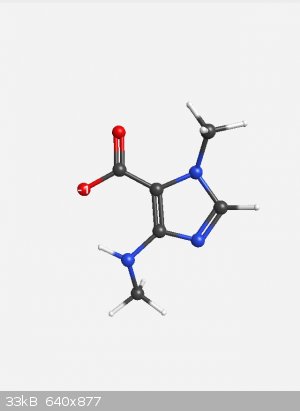
NEMO-Chemistry - 9-11-2017 at 11:26
Once you extract caffeine, and maybe made some Caffeine Citrate. What else can you make with Caffeine?
Surprising Caffeine is classed as one the most important drugs by the WHO.
All I managed to find to make with it was the Citrate, apparently used for premature babies. Also surprised its listed as costing £4.90 for 10mg!!
What a rip off.
symboom - 9-11-2017 at 19:00
There are cheaper sources caffeine is in the no dos tablets
LearnedAmateur - 9-11-2017 at 19:22
Indeed, I buy the anhydrous powder at less than £4 for 50g (personal use as opposed to chemistry, but I have tinkered with the citrate).
Apart from that there isn't really much, I consider it quite a 'boring' molecule. Maybe those amide links can be hydrolysed, caffeidine and caffeidine
acid are expected products, and also this one with further hydrolysis.

Melgar - 9-11-2017 at 19:29
It's an essential medicine because its effects are incredibly well-documented, and every doctor knows what they are. It's an effective
vasoconstrictor, which is occasionally really important to have on-hand.
Any reactions you do with caffeine that are going to be even slightly interesting, will require some knowledge of organic chemistry. Otherwise it's
just another weak base. Caffeine is a type of purine, so if you want to learn about caffeine chemistry, start with purine chemistry. Note that
"purine" refers to both a specific substance and a class of substance, depending on context.
edit: I've got you all beat. $25/kg for synthetic food-grade caffeine.
[Edited on 11/10/17 by Melgar]
The Volatile Chemist - 9-11-2017 at 21:45
Somewhere on SM there is a picture of someone oxidizing caffeine with bromine-water... Also, definitely a few articles on transition metal
coordination with it. Search SM, there's definitely things to be done with Caffeine.
